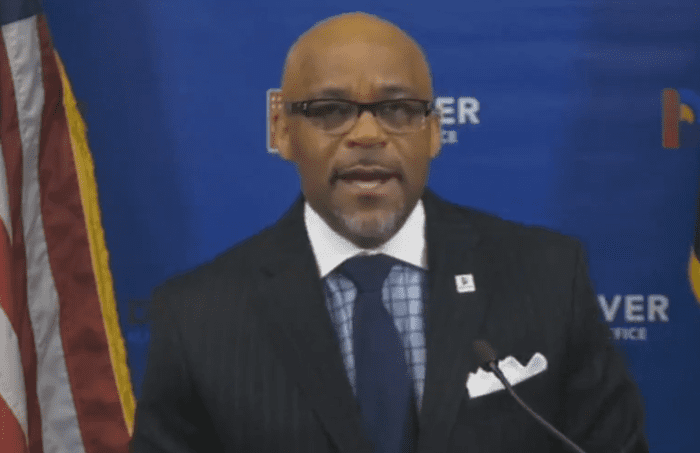Denverites will no longer have to wear masks in outdoor settings, city officials said Wednesday, and other COVID restrictions will be further loosened later this week.
On Friday, the state will officially cede much of the COVID response authority to counties.
At that point, Denver will essentially adopt the state dial — which levies varying restrictions based on COVID metrics — for 30 days.
As part of that, it will move itself from Level Yellow — a midtier level of restrictions — to Level Blue, the second-lowest tier.
That move will allow for 100% capacity with 6 feet distancing for gyms and businesses that have qualified for the state’s Five Star program.
All restaurants, whether they’re Five Star-certified or not, will be allowed to operate at 100% capacity, so long as there’s 6 feet of distancing.
Bars can reopen, last call for alcohol sales will be bumped to 2 a.m., and capacity will increase for offices and retail settings.
Gov. Jared Polis and others have said the state will continue to run some COVID measures.
It’s unclear what exactly that will look like, but Bob McDonald, the executive director of Denver’s Department of Public Health and Environment, said the state will still regulate large, indoor gatherings.
Polis has also extended his mask order, which will continue to apply to K-12 schools, though counties can modify other parts of it.
Counties in the metro area were largely adopting similar restrictions, McDonald and Denver Mayor Michael Hancock said.
There has been a notable exception: Douglas County has said it will opt out of this new approach.
The new measures in Denver will be in place for 30 days, McDonald said.
John Douglas, the executive director of the Tri-County Health Department, told reporters Tuesday that after 30 days, the dial will disappear, and Tri-County will monitor cases for three months.
Asked if Denver would take the same path, McDonald said Denver is not planning for a prescribed three-month monitoring period.
But he said officials are “not just going to evaluate what’s occurring 90 days” from mid-May, when this order expires.
“We’re going to be evaluating this through the rest of the year,” he said. “We’re always going to do that evaluation.”
This content was originally published here.

